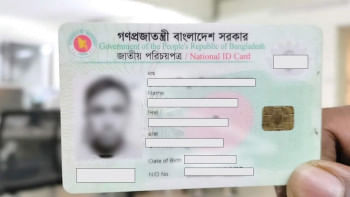Learning from the UK’s experience

Our last column was focused on the multifarious use of the Freedom of Information Act (FOIA) in the United States. Following that exercise and some positive feedback from readers, we focus today on the use of FOIA in the United Kingdom. We hope that the vast range of use of the law in different countries would help our citizens to explore newer and more effective ways of putting it to use.
To get a flavour of the public perspective about the law in the UK, let us recall the famous lament of former Prime Minister Tony Blair, during whose term of office the FOI Act of the UK was adopted in 2004, but who was soon disenchanted about it. The law was so frequently invoked by journalists to unearth unpleasant facts about his administration that in his memoires he castigated himself as a "naive, foolish, irresponsible nincompoop" for having agreed to its enactment.
Over the last 15 years, FOIA has been widely used by journalists and the British people generally to obtain information which would have otherwise remained unknown to them. They led to disclosure of facts that caused much embarrassment and loss of face for British politicians. The most important of them was the scandal over expenses that erupted in 2009 leading to prison terms for five Labour MPs and two Conservative peers, numerous resignations and retirements, as well as repayment of significant sums of money. The most scandalous of the claims was one which revealed that one MP had tried to claim 1,645 pounds for a floating duck house in the garden-pond at his constituency home. Since then, there has been a tug of war between government ministers and civil society activists on whether the law should be emasculated or strengthened.
A most transformative feature of the sensational disclosures on the MPs, which were accompanied by a lengthy legal battle, was that the House of Commons authorities were forced to collate millions of invoices, receipts, letters and other documents relating to the MPs' expense claims going back over several years and to create a new parliamentary pay and expenses system. Observers have called it "a reputational disaster for Parliament and the political class generally." The Daily Telegraph ran stories on what they called "highly embarrassing, greedy, unjustifiable and sometimes criminal behaviour by politicians."
It should be underlined, however, that RTI/FOI stories need not always be of a sensational nature. A survey of FOIA stories from the UK indicated use of the law for following issues: domestic abuse, gross expenditure, wrongdoing, spying, child abuse, cybercrime, dodgy landlords, inflated bonuses, spurious expense claims, etc. In other words, FOIA is used to obtain information on a wide range of issues of public interest which may or may not lead to corrective measures but which alert public officials about the interest of the public to know how government offices work and may lead to systemic change. Here are a few examples:
Ambulance delays
A survey of FOIA disclosures in 2013 revealed that some patients taken by ambulance to accident and emergency departments were kept waiting in the vehicle for much longer than the recommended 15 minutes, several hours in some cases.
Unanswered 101 calls
Hundreds of thousands of phone calls to the 101 non-emergency police number have gone unanswered annually. The data for a nine-month period covering English and Welsh police forces showed nearly half a million calls were unanswered. They raised legitimate questions about whether public services are being performed properly.
Restaurant hygiene
Refusal by a public official of Bridgend Council in South Wales to provide a copy of a food hygiene inspection report for a local hotel to a FOIA applicant and its subsequent overrule by the Information Commissioner established a precedent for such reports to be made proactively available in the public domain. Now food hygiene ratings for hundreds of thousands of restaurants, cafes and shops are routinely made public.
Metropolitan Police defaulting on non-serious crimes
A FOIA response revealed that the UK's biggest police force had a tendecy to stop responding to some less serious crimes. Offences such as vandalism, vehicle crime and fuel theft will not be pursued if the cost of the damage or amount taken is less than 50 pounds.
Some other disclosures
Around 49,000 people demanded compensation for damage caused to their vehicles by worn-out roads. Some Tory MPs took millions of pounds in housing benefits. More than 3,000 police officers were investigated for alleged brutality and most remained on the beat. Prime Minister Gordon Brown claimed 732-pound pen cartridges on expenses. Over 8,200 racism allegations were made against 8,000 Metropolitan Police officers since 2000. Reported child sexual abuse had risen 60 percent in four years. Security guards were used to restrain dementia patients in hospitals. A third of all burglaries in England and Wales were committed by children. More than 500,000 home care visits lasted less than five minutes. Rising numbers of hospital patients were so fed up that they discharged themselves. Hospitals were forced to call in rat catchers every week after Prime Minister David Cameron axed 2,000 cleaners.
The examples will hopefully help the readers to appreciate the large scope of FOI/RTI use. Over the last 10 years in Bangladesh, the RTI Act 2009 has been utilised by our citizens, albeit very scarcely, mainly for personal-level use and to some extent for neighbourhood or group benefits. That the law is actually meant to keep the government offices dealing with matters of larger public interests under watch is largely lost on our citizens.
We have seen successful use of the law to ensure that government services, like safety-net programmes for the indigent, scholarship for students, etc. reach the legitimate beneficiaries and not siphoned off by corrupt officials. The law has also been used to check if local bridges and culverts were properly built and contractors chosen through proper tendering, and if unfair means or favour was used in assessing answer papers of public service examinees. However, there is a clear dearth of attention to matters affecting the entire nation.
The picture in neighbouring India is much different, however. There, the RTI Act has recently been used to unearth sensitive information about the government's controversial demonetisation decision, to ask for information relating to the government's decision on the Citizenship Amendment Act or abrogation of Section 370 of the Indian Constitution affecting the special status of Jammu and Kashmir or curbing the internet transmission in the state. We need to ponder why such examples are lacking in Bangladesh.
It is indeed legitimate for citizens to cry foul against government action or inaction, but how about our own failure to use the law to seek government accountability? The law makes citizens responsible to dig deeper into the allegations they have against government offices by seeking relevant information on them. If the response to their RTI requests is unsatisfactory, they can at least seek recourse under the law. This may not lead to solve many problems but solving even a few, as we have witnessed on a few occasions, may pave the way for the future. The demolition order of the BGMEA building is a good example to prove the efficacy of the RTI Act.
More importantly perhaps, a greater use of the law by citizens is likely to develop an interaction between them and public officials, which is largely absent now. If it happens in a bigger way, it will be a big boost for democracy. Promotion of responsible and accountable governance requires alert and responsible citizens.
Shamsul Bari and Ruhi Naz are Chairman and Project Coordinator (RTI section) respectively of the Research Initiatives, Bangladesh (RIB). Email: [email protected]

 For all latest news, follow The Daily Star's Google News channel.
For all latest news, follow The Daily Star's Google News channel. 



Comments